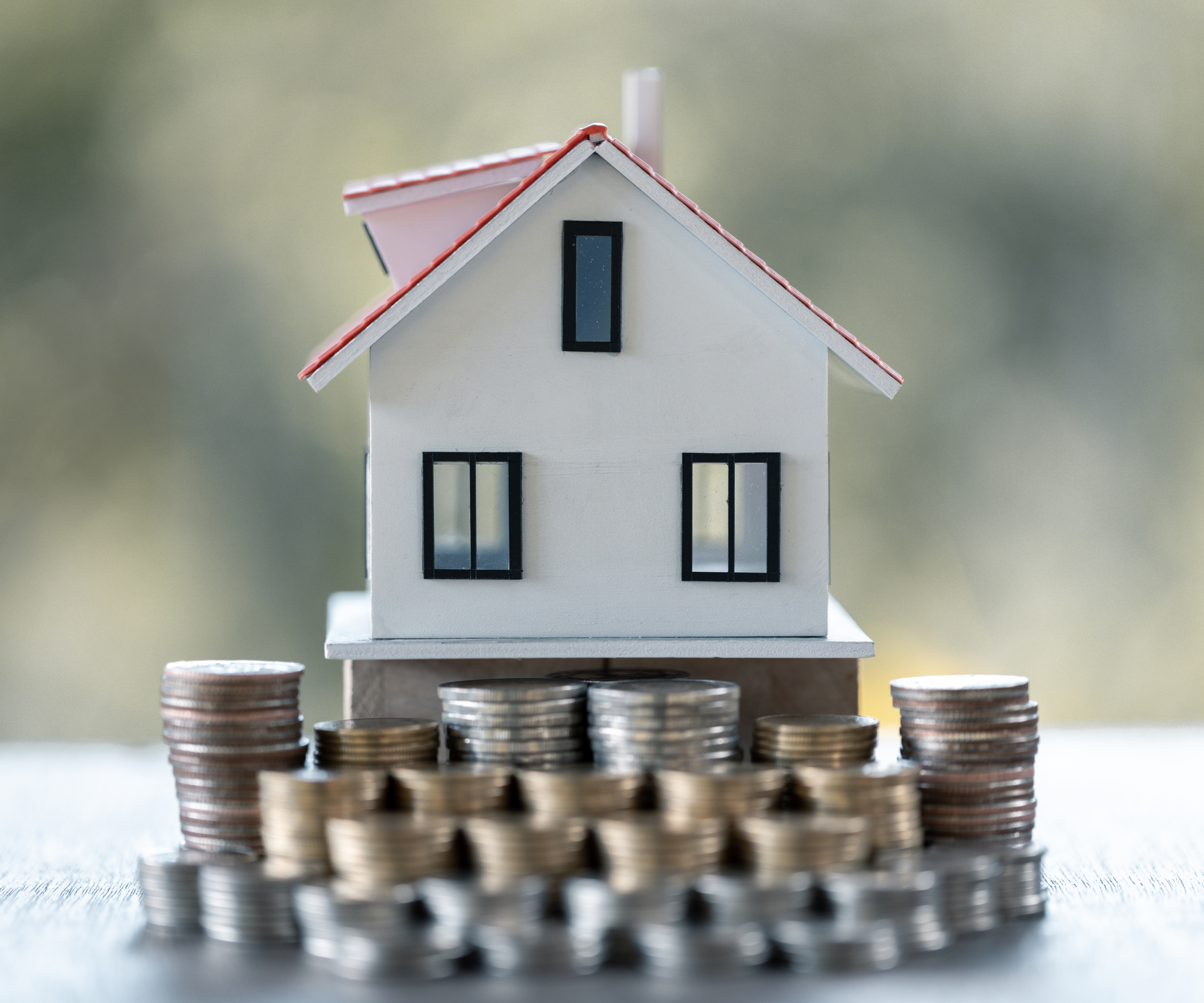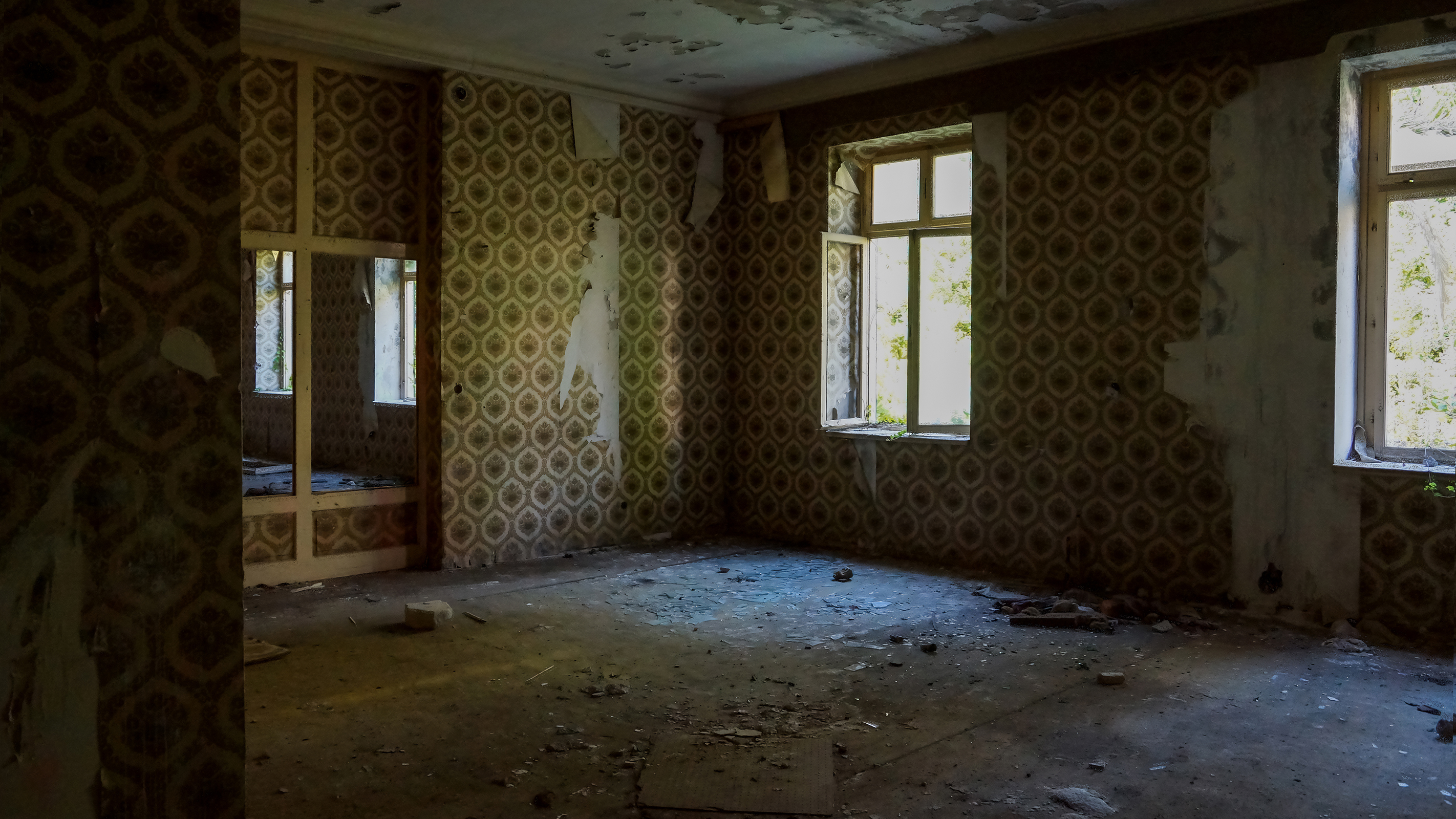The 8 things to know about buying a house at auction
If you’re considering buying a house at auction, it’s vital to understand the process

- 1. Auction sites aren't the only place to find properties
- 2. Organise finance ahead of time
- 3. You can still view property
- 4. Getting a survey is possible too
- 5. Examining the legal pack is essential
- 6. Be realistic with your budget
- 7. Don't get carried away when putting a bid in
- 8. You need to pay quickly if you make the winning bid
If you want to be the owner of a home, auctions can be an attractive alternative to the conventional housebuying process. But there’s plenty you need to know when buying a house at auction because the steps to ownership are somewhat different.
Unlike buying a house in the usual way, buy at auction and you’re committed to the purchase if yours is the winning bid. But while its speed is appealing, becoming a homeowner this way means you need to be completely prepared before the auction and on the day.
Understanding the process and what you need to do is vital, and this guide has the details you need to be ready to bid at a traditional auction. Note that you can also buy via the modern method of auction, but this works in a different way.

Why you need to prepare to buy a house at auction

Subscribe to Plotfinder.net to access over 15,000 building plots and properties that could become your next project
Buy a home in the conventional way and you’ll be some way into the purchase before you exchange contracts and pay a deposit. Buy at auction and you’ll have to do these things on the day of the sale, and then complete 28 days later.
The speed of the auction process avoids the uncertainty that homebuying brings before exchange of contracts, but it means it’s essential to be ready to commit to an auction purchase and have payment ready.
As well as getting your finances in order, you must understand the legal implications of the purchase, and have assured yourself about the structure of the property. Below are the details on what to do.
1. Auction sites aren't the only place to find properties
There are different ways to find houses for sale by auction. The first is via property portals such as Rightmove or Zoopla as well as Homebuilding & Renovating's sister site Plotfinder.net, which have auction filters.
Search via auction houses in the area where you want to buy as well as looking on the property portals. Find these via sites such as Essential Information Group or UK Auction List.
Check the auctioneer’s site for information on registering for bidding, and the information you will need to provide.
2. Organise finance ahead of time
Preparation is essential when it comes to financing a home bought at auction.
"An auction purchase is different from a standard purchase due to the time constraints as you typically only have four weeks to complete," says Amadeus Wilson, head of short-term finance at mortgage broker SPF Private Clients. "This is often not enough time to arrange a traditional mortgage if you haven’t already started the process so if you need to borrow to cover the balance of the funds, you will need to consider another option.
"It is worth getting an agreement in principle before the auction, which will normally be subject to valuation, legals and standard due diligence," he continues. "Often properties being purchased at auction do not meet mortgage lenders’ criteria as they are uninhabitable and may not have a working kitchen and/or bathroom for example. In this scenario, you may need to use a bridging loan to complete on the purchase, complete the required refurbishment works, and then refinance onto a mortgage.
"The 20-working day turnaround is restrictive for mortgage lenders and they aren’t always able to meet these time frames, unless you have started an application and ideally have a mortgage offer," he says. "Where mortgage lenders are unable to complete within the time frames, bridging finance can be used for speed. You will then be able to refinance as soon as you have completed on the purchase.
"A bridging loan should be arranged via an experienced mortgage broker who understands the market and process involved with buying at auction," he explains.
Pay attention to the details in the legal pack (see below). "Watch out for any clauses which could create a problem with getting a loan on the property or selling it in future," says Amadeus. Your solicitor’s review of the legal pack should confirm there is nothing which would prevent a lender from registering their charge against the title, he says. "If the solicitor flags any issues, it may be possible for your broker to resolve these with the lender ahead of the auction with sufficient preparation time" he notes.

Amadeus Wilson is head of short-term finance at mortgage broker SPF Private Clients. He has been helping clients buy property at auction since 2018. Before that, he worked as a mortgage broker for the previous five years.
3. You can still view property
You should arrange viewings for properties in which you are interested, and you can do so via the auctioneers. Unless you have expertise, it is advisable to take someone with you who can assess the amount a property might need to have spent on it so you can tailor your bid appropriately. A builder, architect or surveyor can help, but bear in mind the cost of their time.

4. Getting a survey is possible too
Getting a survey done on a property you plan to bid on at auction is a step you shouldn’t miss.
While you will have spent money if you subsequently decide not to bid or, in the event that you do and are unsuccessful, this is a relatively small outlay compared to buying a property with serious issues. The results should help inform your maximum bid.
5. Examining the legal pack is essential
Auctioneers provide what’s called a legal pack for properties and it’s crucial to examine the pack of a property on which you propose to bid. However, it is highly recommended that you employ a conveyancing professional to review it, too.
"Properties being sold at auction often have more complex legal issues," says Natalie Skinner, partner and head of the residential property team at Gullands Solicitors, "so a solicitor will check: title and ownership of the property or land, the results of any searches provided with the legal pack, the position with regards to any required planning permission or building regulation consent, positive and restrictive covenants, supply of services, easements, wayleave and third-party agreements including rights of way and tenancy checks if the property is being let. They will also carry out all the usual conveyancing checks.
"Having a full understanding of the legal issues and how they can be overcome is important as it could prevent you from using the property or land in the way you hoped to and cost you a significant amount of money to put right," she adds. "It could also mean the property is worth less than what you would have been prepared to bid for it."

Natalie Skinner is a partner and head of the residential property team at Gullands Solicitors. She specialises in all aspects of residential conveyancing, including sales and purchases of freehold, leasehold, auction, shared ownership and new build properties.
6. Be realistic with your budget
It’s important to think about what you are prepared to pay once you have viewed the property, had a survey and your conveyancing professional has reported back to you.
Auction properties have a guide price, but you should also look at sold prices in the area and consider what your maximum bid would be. "The guide is often within 10 per cent or so of the value, but at an auction, anything can happen – it just takes two bidders to push the price sky-high," says property professional Jonathan Rolande.
It’s important to note that the reserve price is not the same as the guide price. If the bidding doesn’t reach the reserve (known by the seller and auctioneer) the property isn’t sold at the auction, but it may still be sold afterwards.

Jonathan Rolande is an experienced property professional and property expert who has been buying and selling at auction for nearly three decades. An advocate for improving standards for property buyers, he formed the National Association of Property Buyers in 2013, a not-for-profit organisation working alongside the Property Ombudsman.
7. Don't get carried away when putting a bid in
It’s worth attending auctions at which you’re not going to bid to see the process in action beforehand. On the day you intend to bid, be sure about the maximum you are prepared to spend.
"Don't get carried away – be prepared to walk away even if you have spent money and time on the property – another usually comes along. It’s better than over-bidding," says Jonathan Rolande.
8. You need to pay quickly if you make the winning bid
Rapid action is required if yours is the winning bid. "On purchasing the property on the day of the auction you are automatically required to pay a 10 per cent deposit based on the sale price, entering into a legally binding contract with the vendor," says Amadeus Wilson. "The balance of the funds are then due within 20 working days.
"If you are unable to complete by the auction deadline, your 10 per cent deposit is at risk so it’s very important to seek advice before the auction," he cautions.
Don’t forget that stamp duty can still be due, depending on the price of the house. That you have bought at auction makes no difference to liability. Typically, your conveyancing professional will make the payment to HMRC, but always budget for these additional house buying costs.
"And don’t forget the fees, there is usually a buyer's premium to pay so yet another reason to check the small print," says Jonathan Rolande.
Remember that once you’ve exchanged contracts you are responsible for the house, so get buildings insurance right away.
Buying at auction has plenty of plus points including the speed with which a property will be yours, but you do need to accept that if you don’t win you will have spent money on a survey and legal work. But don’t give up hope if a property doesn’t meet its reserve price on the day as you may get the chance to put in another bid afterwards.

Get the Homebuilding & Renovating Newsletter
Bring your dream home to life with expert advice, how to guides and design inspiration. Sign up for our newsletter and get two free tickets to a Homebuilding & Renovating Show near you.
Sarah is a freelance journalist and editor writing for websites, national newspapers, and magazines. She’s spent most of her journalistic career specialising in homes.
She loves testing the latest home appliances and products, and investigating the benefits, costs and practicalities of home improvement. She is an experienced renovator and is currently remodelling the ground floor of her new home.
She was Executive Editor of Ideal Home and has worked for Your Home and Homes & Ideas. Her work has published by numerous titles, including The Guardian, channel4.com, Houzz, Grand Designs, Homes & Gardens, House Beautiful, Homes & Antiques, Real Homes, The English Home, Period Living, Beautiful Kitchens, Good Homes and Country Homes & Interiors.
